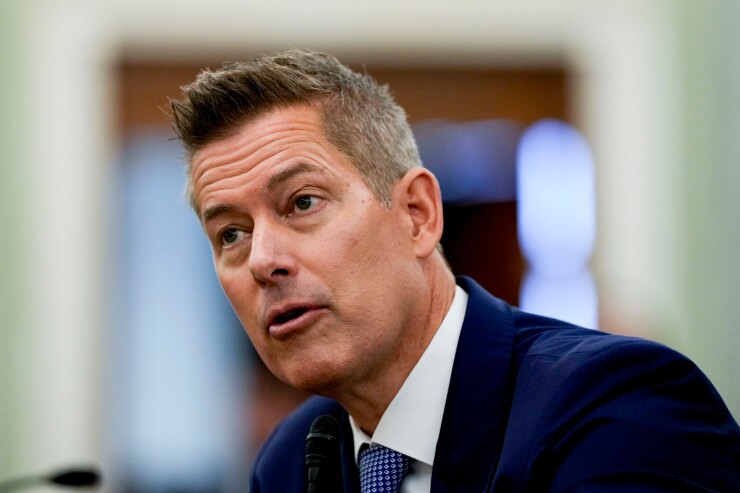
Congress is stalled in negotiations to keep the government open past the end of the month, which could affect air travel as the U.S. as the Department of Transportation announces progress on solving a shortage of air traffic controllers.
"These latest numbers show our supercharge effort is continuing to hit milestones, and we are making progress on that promise," said U.S. Transportation Secretary Sean Duffy.
"This Department will continue to use every tool at our disposal to chip away at decades of controller staffing declines because the American people are counting on us."
DOT says it's hired 2,026 new controllers in the current fiscal year, beating a goal of 2,000.
The shortage of ATC's has been a slow simmering issue since the pandemic and became worse due to retirements, a demanding training regimen, a shortage of instructors and having a single training facility for the entire country.
Air travel related stress consistently brings the notion of moving airport infrastructure financing and ACT training towards
The FAA currently relies on formula funding and appropriations which could be interrupted by a government shutdown.
According to Robert Poole, the director of transportation policy for the Reason Foundation, a libertarian think tank, "The FAA depends on Congress to provide its budget, and Congress is not 100% reliable."
Poole is also less than convinced that the DOT's hiring numbers are telling the whole story relative to its four-year ATC Workforce Plan.
"The FAA expects increased attrition in this four-year period, partly due to a larger number of controller training failures at both the Academy and in subsequent on-the-job training," he said.
The ATC shortage became an area of intense media focus after a fatal crash at Washington's Reagan National Airport in January that killed 67 people and a series of near misses.
The idea of shuttering FAA operations during a government shutdown typically spurs Congress to action.
Last week House Reps. Steve Cohen D – Tenn., and Andre Carson D- Ind. introduced a bill to keep the FAA open and employees working by drawing funding from the Airports and Airways Trust Fund in the event of a shutdown.
"The aviation system is too critical to be caught up in Washington's budget battles," said Cohen. "At a time with continued government uncertainty, this measure is a no brainer and just makes sense."
An identical bill was introduced in 2021 when the FAA was also threatened by a shutdown.
Airports are reliable issuers of private activity bonds to finance infrastructure projects and were allocated $25 billion in funding from the Bipartisan Infrastructure Law.
Despite the investment the American Society of Civil Engineers gave the nation's airports a grade of D+ on its Infrastructure Report Card and placed the blame on "the continued failure to raise the cap on the Passenger Facility Charge."





